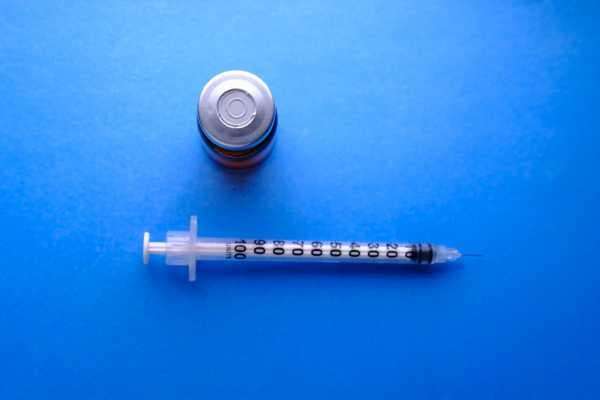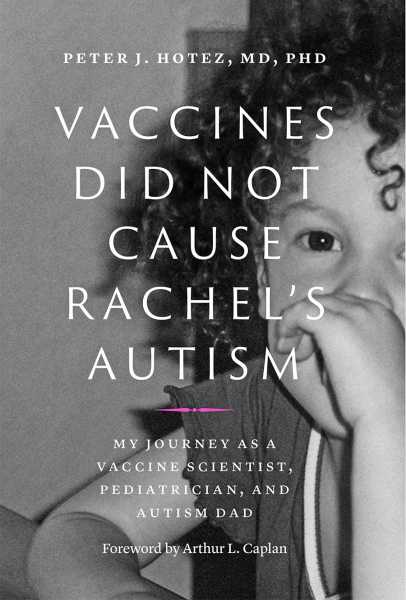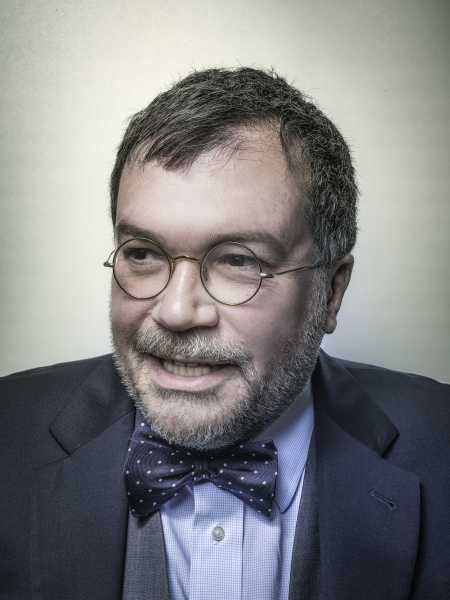
The vast majority of American parents vaccinate their kids. But the latest national data shows that the minority of kids under the age of 2 who aren’t protected by any vaccines has quadrupled over the past two decades, according to the Centers for Disease Control and Prevention.
Of the babies born in 2015, 1.3 percent had received none of the recommended vaccinations by age 2 — up from 0.3 percent in 2001.
If that wasn’t concerning enough, in some regions of the country, up to 40 percent of kids now aren’t being protected against preventable diseases like measles and whooping cough, says Peter Hotez, director of the Texas Children’s Hospital Center for Vaccine Development at Baylor College of Medicine.
“There are pockets across the US where you have a 20-fold increase, like we’ve seen in parts of Texas. Although, nationally, immunization rates may not have changed that much, we have pockets where 20 to 40 percent of kids aren’t vaccinated, and that gets you into trouble with measles and other [vaccine-preventable] infections.”
So how did we get here?
In a new book, Vaccines Did Not Cause Rachel’s Autism, Hotez traces the roots of the problem back to 1998, when an esteemed medical journal published a small study that has become one of the most notorious and damaging research papers in medicine. The study, led by the discredited physician-researcher Andrew Wakefield, suggested there’s a link between autism and the measles, mumps, and rubella vaccine — which is administered to millions of children around the world each year.

Just before that time, Hotez’s daughter, Rachel, born in 1992, was diagnosed with autism. As he and his wife struggled to understand Rachel’s needs, Hotez was gathering up the data showing how spurious the vaccine-autism link was, and learning that most researchers were looking elsewhere to understand the condition. But these messages were often crowded out by vaccine doubts, Hotez says.
“It’s still a source of tremendous frustration, and I’m trying to turn it into something positive by writing this book.”
The book blends the history of vaccination and the anti-vaccine movement with Hotez’s personal history as an autism dad and vaccine scientist. Together, the narratives make a compelling argument for why vaccines are one of the most important tools humans have in our battle against disease — and why the turn against these life-saving shots by some requires our urgent attention.
But is Hotez just preaching to the converted, or will he be able to quell vaccine doubts? I asked him about that, his experience with cyberbullying, why the public health community has failed to defend vaccines, and what’s at stake if vaccine skepticism isn’t addressed head-on. Here’s our conversation, edited for length and clarity.
Julia Belluz
You’re brutally honest in the book about the mental and financial cost of having a child with autism as well as severe intellectual disabilities. What do you want people to understand — that you think they currently don’t — about that experience?
Peter Hotez
With Rachel, my wife and I found that it’s not so much the autism, but her intellectual disabilities, which are so devastating.
The problem in the US is that we have a terrible safety net for people with intellectual disabilities. As parents we’re on our own much of the time.
This is why I sometimes criticize the anti-vaccine lobby — they suck out all the oxygen when it comes to autism with their phony arguments about vaccines, so that at the end of the day there’s little left to address what autism parents and those on the autism spectrum really need — specially tailored services for the co-morbidities [co-occurring diseases or illnesses], like good job coaching and help with housing.
Julia Belluz
You’ve long worked on vaccines but have never been very public about your experience as an autism dad. Why did you feel the need to come out with your personal story now?
Peter Hotez

I felt I was losing the battle to the anti-vaccine lobby. I felt it was a public service or duty to do everything I can to slow down the anti-vaccine movement. Like what we’ve had happen in the US — a terrible measles outbreak all of last year in Minnesota. We have had measles outbreaks in Kansas, Missouri this year.
We’ve had a horrific 2018 flu season, where of the 200 children who died from flu, the vast majority were not vaccinated despite the recommendation that all children over 6 months get their flu vaccine. Then we’ve got this situation in Europe: 40,000 measles cases in the first half of 2017.
I became alarmed at what I saw as the absence of a counter voice to the anti-vaccine lobby. And I felt I was in a unique position as a vaccine scientist and pediatrician, and as an autism dad, to stand up to this and say this has got to stop.
The science in itself may not [always] be adequately persuasive. People need a personal story to go with it.
Julia Belluz
Changing people’s minds is difficult — and part of the problem is the mistrust of experts and the medical establishment. You’re part of that establishment. Why do you think people will listen to and trust you?
I’m well-positioned to do so because I have unusual expertise in both vaccines and autism, and without an agenda or conflict of interests
Peter Hotez
Well, I’m part of the establishment, and then again, I’m really not. Although I’m a vaccine scientist heading the Texas Children’s Hospital Center for Vaccine Development, we’re a nonprofit that does not take vaccine industry funding. We’re developing vaccines for the poorest of the poor with no real prospect of significant financial return. I will never make a dime on our neglected tropical disease vaccines.
At the same time, I’m also an autism dad, who has looked carefully into the latest autism research, which is a unique combination. That’s why I chose to speak out and defend vaccines. I’m well-positioned to do so because I have unusual expertise in both vaccines and autism, and without an agenda or conflict of interests.
From my experience, a majority of vaccine-hesitant parents are not deeply dug in. They’ve gotten misinformation from anti-vaccine websites and social media, or they’ve heard something unsavory about vaccines from friends and relatives. I believe my book might reach those individuals. Then there’s another group, maybe 10 to 20 percent who are deeply dug in and believe all of the fake conspiracy theories. Those individuals are really difficult to reach.
Julia Belluz
You and others have noted that our leaders and public health officials — such as the folks at the Centers for Disease Control and Prevention (CDC) — have failed to adequately defend vaccines. Why do you think that is?
Peter Hotez
There’s the obvious reason: Who wants to get cyber-bullied like I get cyber-bullied, and who wants to put up with the harassment?
And when this anti-vaccine movement began in 1998, they probably felt it was a cult or fringe movement and one they did not want to draw attention to — feeling they’d give it oxygen. So I think they thought by ignoring it, it’d go away on its own. But it hasn’t.
I think the other thing I’ve seen with the CDC: They say look nationally at the immunization rates, which haven’t changed that much. I counter that by saying [national rates are] a blunt instrument. They ignore all these terrible pockets where we have large numbers of school-age children not being vaccinated. Then there’s the HPV: There are terrible uptake rates in south and central US.
Julia Belluz
Cyber-bullied? Can you tell me a little more about what you’ve been up against?
Peter Hotez
I don’t like to emphasize this too much. But because I’m a vaccine scientist that does not take vaccine industry funds and an autism dad, I felt compelled to speak out and defend vaccines. Presumably this is threatening to the anti-vaccine lobby, which is well-organized, well-funded, and aggressive and relies heavily on combining pseudoscience, messaging that uses phony terms like “medical freedom,” and bullying tactics.
They’ve been doing this for 20 years, beginning with the Lancet paper in 1998, but it really stepped up a year or so ago when they learned I was writing [this] book. It’s often hurtful and sometimes I get scared for myself and my family, but I felt it was important to have a pro-vaccine voice out there defending vaccines. I also think it’s important that academics like me use our knowledge for the public good.
Julia Belluz
We’re also living in a moment when populism is rising, and figures like conspiracy theorist Alex Jones and Russian trolls are spreading vaccine disinformation. That certainly hasn’t helped.
Peter Hotez
I’ve tried to think what would be motivation [behind Russian trolls]. I think it’s to create distrust of the government, and that’s what we are seeing now here in Texas. The phrases and terms being used are things like “medical freedom” and “choice.” But it’s happening at the expense of the rights of children.
If you’re a parent, it’s not a choice whether or not you put your child in a car seat when you drive them in the car. If you own a firearm and you have children, you have to keep the firearm locked. It [should not be] a choice whether you vaccinate your children. They have a fundamental human right to be protected against deadly infections.
In the 2018 flu outbreak, the vast majority of children who died in the US from influenza were not vaccinated
Julia Belluz
And right now, vaccination is a choice in many states — parents can opt out on behalf of their kids on religious or philosophical grounds. Do you think more states should go the way of California and make it harder to opt out?
Peter Hotez
I think we need a few things to happen. Yes we need to close non-medical exemptions for personal or philosophical beliefs in the 18 US states that still allow this, as was done in California. But as I, as well some colleagues, point out, this alone will not be sufficient. We need to do better at pro-vaccine messaging.
We saw this in the 2018 flu outbreak in which the vast majority of children who died in the US from influenza were not vaccinated. This was a failure in vaccine advocacy, which made little to no effort to try and counter the misinformation from strong and well-funded and organized anti-vaccine forces. My book is a first step, I hope.
Julia Belluz
What’s at stake if vaccine denialism deepens?
Peter Hotez
We’ll continue to see outbreaks of serious infectious diseases. Measles is the first we see because it’s highly transmissible. So measles is a good marker for drops in vaccine coverage overall.
Second, we’ll continue to see resistance for the introduction of new vaccines. We’re seeing this with the HPV vaccine. Australia is talking about eliminating cervical cancer by 2028. We in the US are struggling to get 50 percent of teenagers vaccinated against cervical cancer. That’s a terrible tragedy.
The third issue I see looming is this will not stop in the US and Europe. The US is good about exporting its culture — Hollywood, music, commercial products. Now we’re exporting this anti-vaccine garbage. I’m quite worried we’re going to start to see drops in vaccine coverage in some of the big middle-income countries like India, Brazil, and China. That’ll have catastrophic consequences to the point where we could reverse global goals and the progress we’ve made. I’m worried that ultimately this could unravel.
Julia Belluz
What do scientists now believe causes autism? Was there ever a strong scientific case for vaccines as the culprit?
Peter Hotez
No. As I point out in the book we’ve now learned so much about autism science and the developmental progression leading to autism, which begins prenatally well before kids are ever vaccinated. We have at least 65 genes identified, and with Rachel through whole exome sequencing, we believe that an additional one is forthcoming.
Also there’s an important role for epigenetics and potential environmental exposures early on in pregnancy — the book reports on studies that identify four or five known chemical exposures in pregnancy that can also lead to [autism].
The technology is so powerful now … the question is how this information is used appropriately and ethically. Many on the autism spectrum are worried about this. We need to have a national dialogue that brings together experts in neuroscience, genetics, and it must also include bioethicists and strong representation by individuals on the autism spectrum.
Sourse: vox.com






